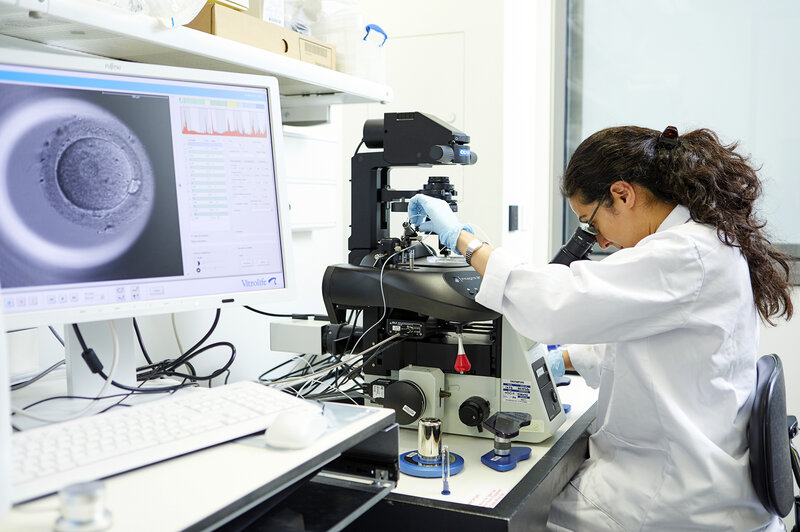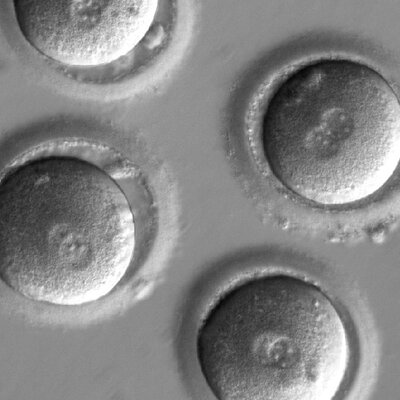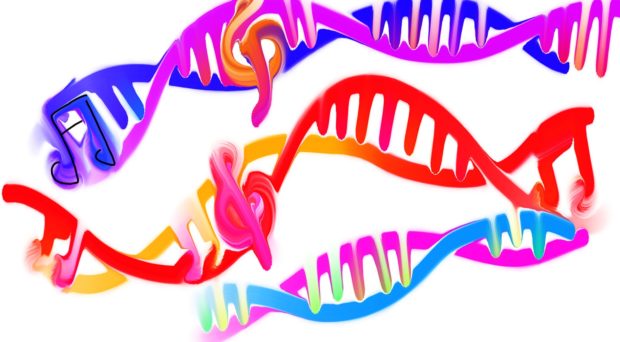
Kathy Niakan, a developmental biologist at the Francis Crick Institute in London, used the CRISPR gene editing technique to find out how a gene affects the growth of human embryos.
Courtesy of The Francis Crick Institute
For the first time, scientists have edited the DNA in human embryos to make a fundamental discovery about the earliest days of human development.
By modifying a key gene in very early-stage embryos, the researchers demonstrated that a gene plays a crucial role in making sure embryos develop normally, the scientists say.
The finding might someday lead to new ways for doctors to help infertile couples have children, and could aid future efforts to use embryonic stem cells to treat incurable diseases, the researchers say.
The work also provides the first direct evidence that manipulating DNA in human embryos can yield insights into how a single cell becomes a complex human. That has been the major justification for allowing scientists to change human DNA in ways that could be passed town to future generations, a step that had long been considered off limits because of fears about safety and opening the door to “designer babies.”

A human embryo is injected with edited DNA in a laboratory at the Francis Crick Institute in London.
Dr. Kathy Niakan/Nature
“This proof of principle lays out a framework for future investigations that could transform our understanding of human biology,” the researchers write in reportingtheir findings in the journal Nature on Wednesday.
That statement was seconded by other scientists.
“It opens up a new area of research,” says Dietrich Egli, a Columbia University biologist who studies stem cells and was not involved in the study. “Understanding early human embryonic development is of great importance, and gene-editing is a powerful tool to answer questions that will ultimately improve human health.”
But the research is renewing a long, intense debate about whether it’s ethical to make changes in the genes in eggs, sperm or very early embryos that would be passed down to succeeding generations. While using gene editing for basic research about human development may be useful, critics worry it could lead to attempts to create genetically modified babies.
“The concerns are that we would be opening the door to fertility clinics vying to offer gene-editing to make future children taller or stronger or whatever they wanted to market,” says Marcy Darnovsky, who heads the Center for Genetics and Society, a genetics watchdog group. “That could put us into a situation where some children were perceived to be biologically superior to other children.

SHOTS – HEALTH NEWS
Scientists Precisely Edit DNA In Human Embryos To Fix A Disease Gene
The study comes just weeks after another team of scientists reported the group had for the first time edited the DNA in human embryos to correct a genetic defect that causes a heart disorder.
The new research was led by Kathy Niakan, a developmental biologist at the Francis Crick Institute in London. Niakan’s team used a powerful gene-editing technique known as CRISPR to disable a gene that produces a protein known as OCT4. The procedure was performed in 41 embryos donated by women undergoing treatment for infertility.
In the study, more than 80 percent of the embryos with the disabled gene failed to develop into a blastocyst, a ball of 200 cells that is the stage when embryos are usually implanted into the womb during in vitro fertilization (IVF). Many cases of infertility occur because embryos fail to reach this stage.
“That tells us that OCT4 is really important for the development of a human blastocyst,” Niakan told reporters during a briefing.
“By understanding the key genes that are involved in the development of the blastocyst, this can really inform our understanding of this important, critical window of human development,” Niakan says.
The experiments also show that the gene is involved in forming the cells that eventually become the placenta, the organ that nourishes a developing embryo in the womb, the researchers reported.
In addition, OCT4 helps embryonic stem cells specialize into various tissues, which could help scientists figure out how to turn stem cells into replacement cells, tissues and perhaps entire organs to treat diseases, Niakan says.
[“Source-timesofindia”]










